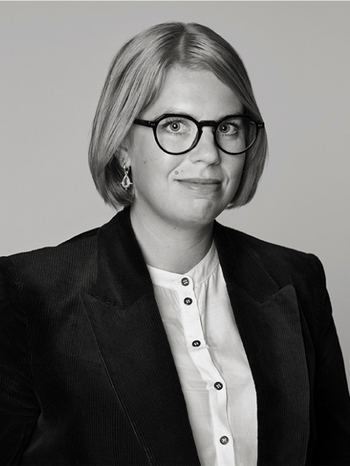Christen Købke
"To læsende børn (Two reading children)"
Depicting the artists son Peter and his niece Cecile Feilberg. 1845. Canvas 43 x 49 cm.
Alkuperä - Provenienssi
Bough in Denmark by the present owner's grandfather around year 1900, then by descent in the family.
Näyttelyt
Probably exhibited in Malmö, Sweden in the 1960s.
Compare with earlier auction sale of a sketch on Bruun Rasmussen, 9 June 2005, catalogue number 1588.
Kirjallisuus
Emil Hannover, "Maleren Christen Købke - en studie i dansk kunsthistorie", Copenhagen, 1893, catalogue number 150, page 151.
Muut tiedot
In this delicate children’s portrait we meet the artist Christen Købke’s son Peter and his niece Cecilie Feilberg reading a book. The children are lovingly portrayed, close to reality with a warmth and harmony, far from the heroic and pompous previously seen in portraiture. This painting demonstrates Købkes ability to provide ordinary people, places and simple motifs with a universal significance, creating a world in microcosm for the viewer.
Købke counted as one of the leading artists of the so-called Danish Golden Age which lasted from around 1800 until 1850. The Golden Age produced a number of prominent individuals in art, architecture, culture and society. Christoffer Wilhelm Eckersberg and his students Christen Købke, Wilhelm Bendz, Martinus Rørbye, Constantin Hansen and Wilhelm Marstrand were the foremost artists of the period and are sometimes known as the Copenhagen School. They have set the standard for a series of following Danish renowned artists such as Vilhelm Hammershøi and Carl Holsøe.
Købke left Denmark only once in his life for the artists mandatory trip to Italy. Within the family, amongst his friends, in his father's bakery and in his immediate environment he found all the motifs he needed. Købke worked a lot outdoors and treated the light and atmosphere with a painterly immediacy that created new perspectives on the Danish national monuments around him. It has jokingly been said of him that he never painted so far from home that he couldn’t get home in time for dinner.
Danish Golden Age also produced for example, author Hans Christian Andersen and the philosopher Søren Kierkegaard, but with Købke it found its true poet, a painter who has been compared to the poet John Keats in his touching and poetic interpretations of Danish life.
Just in time for Købke’s death in pneumonia only 37 years old in 1848 ends the Danish Golden Age.
In the spring of 2010 the National Gallery in London showed a retrospective of Christen Købke called “Danish Master of Light”, the first big exhibition of his oeuvre outside of Denmark.



































